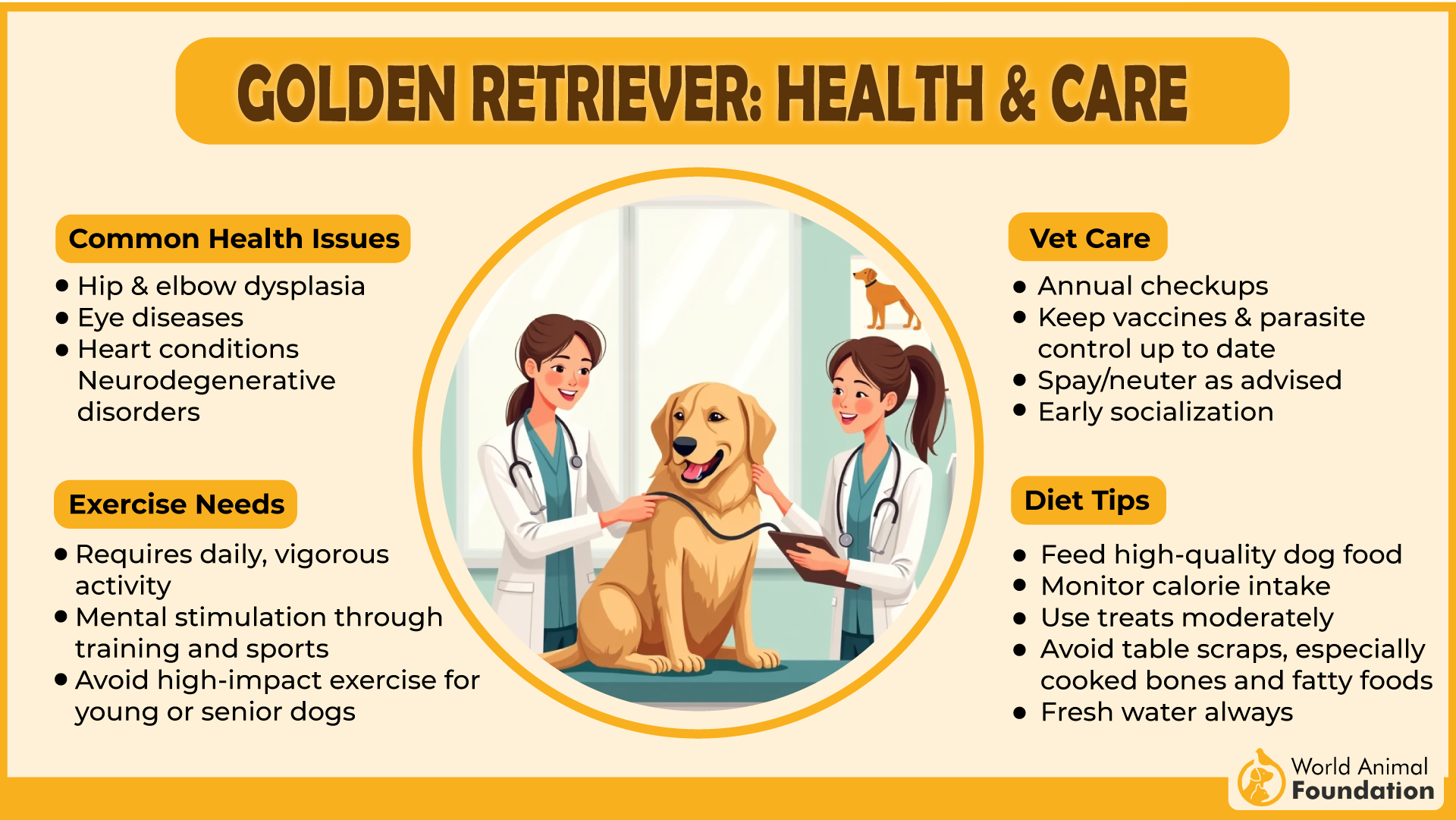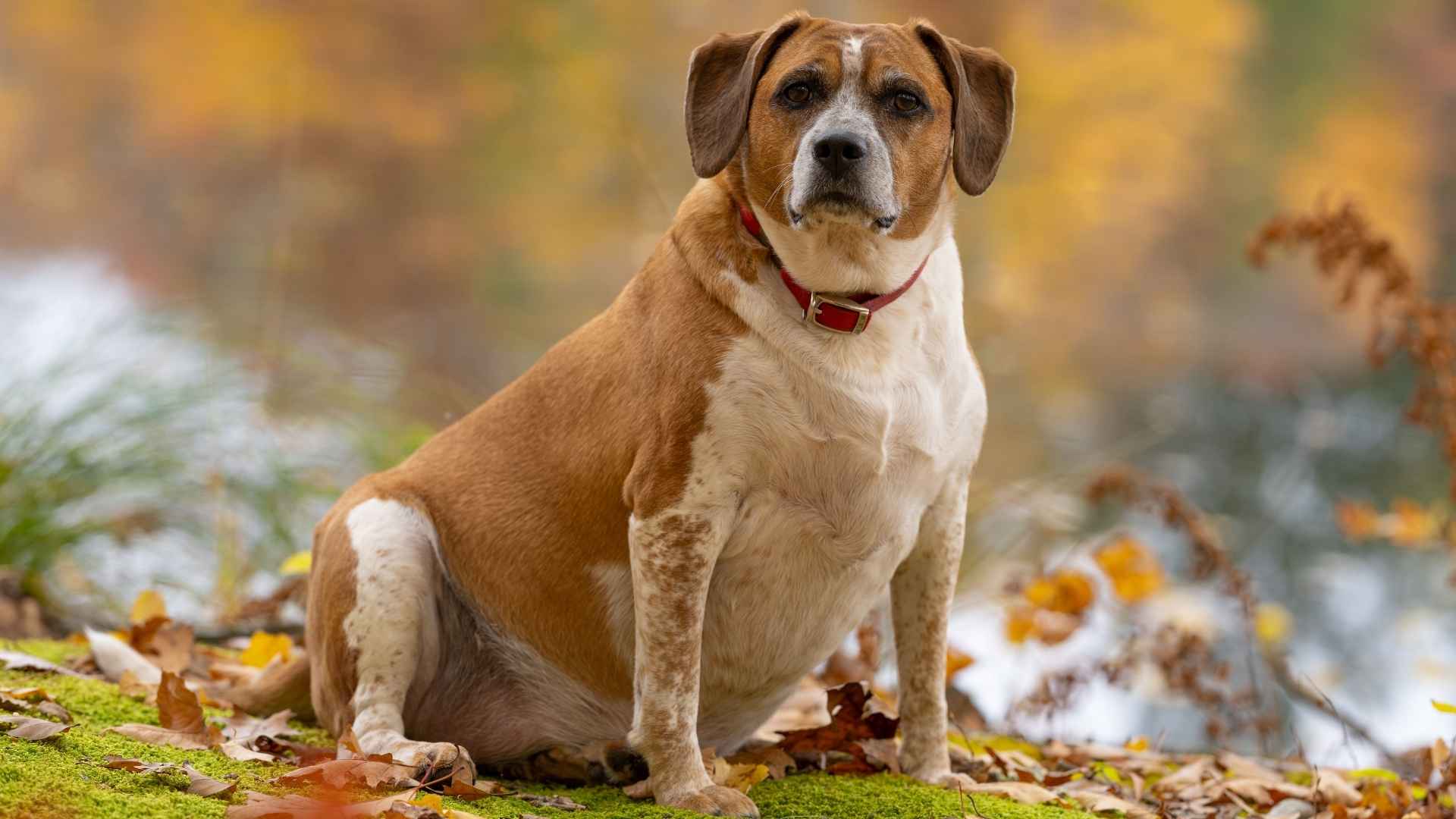Do you know that nearly half of all dogs are either overweight or obese?
Obesity in dogs is now one of the most common nutritional disorders for pet owners. The Pet Obesity Prevalence Survey found that almost 59 percent of dogs in the U.S. are overweight or obese. This situation leads to serious health issues.
Being overweight can affect a dog’s heart, joints, breathing, and even its lifespan. Some breeds are genetically predisposed to gain weight. Faster breeds often become overweight more easily than others.
Therefore, dog owners need to be aware of these risk factors and adopt preventive care measures. Let’s look at which breeds are more likely to get obese and how to keep your pet healthy.
Dog Breeds Prone To Obesity
Here is the list of 7 breeds that can easily get fat:
1. Labrador Retrievers

Labrador retrievers are renowned for being both cuddly and active dogs; however, they also face a significant risk of canine obesity.
They have a strong appetite and will often ask for more, which can lead to a rapid increase in weight. According to the AKC, they are friendly, loyal, and affectionate towards their family.
These pets typically stand between 21.5 and 23.5 inches tall and weigh about 55 to 70 pounds. Labradors, being one of the most popular companion animals, are also easily overfed by over-loving pet parents.
They are at high risk of becoming obese. Therefore, controlling portions and managing calorie intake is essential.
Regular walks and mental activities, such as fetch or swimming, can help them to lose weight and maintain their fitness. It is essential to include low-fat dog foods, a minimal amount of human foods, and table scraps.
2. Cocker Spaniels

Cocker spaniels are adorable and affectionate dogs, but they are prone to obesity due to a lack of exercise. To maintain their health, it is essential to engage in regular physical activity and maintain a balanced diet.
Owners should monitor their diet and engage in consistent exercise to prevent weight gain and associated health problems. Early warning signs of obesity include breathing problems and tiredness.
A balanced diet, combined with low-calorie snacks and regular physical activity, can help maintain a healthy weight.
The ideal weight for this puppy should be 20-30 pounds, and it should stand about 14-15 inches tall at the shoulder. Regular vet visits are also recommended to check their body condition score and ensure their overall health.
3. Golden Retrievers

Golden Retrievers are cheerful dogs that are prone to obesity if they don’t receive daily exercise and a balanced diet. They’re easy-going and love activity, but can overeat if not monitored. Without proper care, obesity can lead to joint pain, cardiovascular diseases, and arthritis.
To maintain the health of golden retrievers, regular exercise is essential. Activities such as fetching, taking long walks, and swimming can help burn excess calories.

A balanced diet, supplemented with healthy snacks like veggie-based treats, can also make a significant difference.
According to PetMD, Golden retrievers typically weigh 55-75 pounds and stand 20-24 inches tall. They’re friendly, loyal, and love being active, making them an excellent companion for families and outdoor humans.
4. Pug

Pugs are adorable lap dogs, but their small size and love for snacks make them prone to obesity. Britannica explains that their short snouts and breathing problems can make exercise challenging, and excess weight can worsen these issues.
To keep Pugs healthy, regular short walks and playtime can be beneficial, despite their tendency to be stubborn.
Measuring food portions and limiting treats is crucial to prevent overeating. A nutritious diet and consistent exercise routine are key to managing their weight.
Pugs typically weigh between 14 and 17 pounds and stand 10-13 inches tall. With careful management, Pugs can stay healthy and happy, enjoying their role as loving companions.
5. Beagles

Beagles are energetic hunting dogs with a strong appetite that can lead to overeating. These obese dogs have a strong affinity for food and may engage in scavenging behavior, making close monitoring essential. Without proper exercise and mental stimulation, they can quickly become overweight dogs.
To keep Beagles healthy, try using puzzle feeders to challenge them and slow down their eating mentally. Outdoor exercise is also crucial for burning excess calories and stimulating the senses. Close monitoring of calorie intake is necessary to prevent overeating.
Beagles typically weigh 18-30 pounds and stand 13-15 inches tall. With proper care and attention, they can stay fit, happy, and healthy, enjoying their natural instincts as hunting companions.
6. Dachshund

Giving excessive treats to your furry friend may seem like a way to make them happy, but it can lead to serious health issues in the long run. It can affect your dog’s weight. These dogs are adorable, playful, and can easily get a little too round if they overeat or don’t get enough exercise.
Due to a combination of the long body and short legs, this dog is particularly obesity prone and is prone to back problems, such as IVDD. To keep your dog relaxed, happy, and healthy, make sure to avoid human food and limit those yummy treats.
Your cute little dog needs short walks every day and loves to play with you; they enjoy being active. Daily walking benefits both you and your dog. According to Purina, it usually weighs between 16 and 32 pounds and stands about 6 to 10 inches tall.
7. Basset Hounds

Basset Hounds are affectionate and calm, but their low energy levels and short legs make them especially prone to weight gain. Age, breed, and activity level are some of the other factors that contribute to this fatness.
Their long backs are sensitive to pressure, and carrying extra weight can lead to serious issues, such as arthritis and back problems.
These dogs often become overweight due to a lack of exercise and overfeeding. This excess weight can affect their breathing and mobility, making regular physical activity even more challenging. This pet dog weighs between 40 and 65 pounds, and stand between 10-15 inches tall at the shoulder.
To help their dogs stay fit, owners should limit treats, avoid giving table scraps, and offer low-calorie dog food. Gentle daily walks and routine vet visits are essential for monitoring their body condition and preventing obesity-related health risks.
Conclusion
Obesity in dogs is more than just a weight issue; it’s a serious health concern that can lead to long-term complications like joint pain, heart disease, and diabetes. Some breeds are more prone to obesity due to their genetics, lifestyles, or appetites. As a good pet owner, it’s important to understand everything about your dog’s health and needs.
With early intervention, portion control, and regular vet checkups, you can help your furry friend live a longer, healthier, and happier life. So, go ahead and give your pup a healthy treat today!


